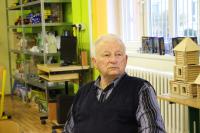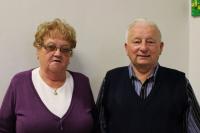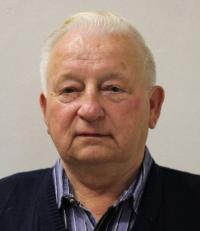Flying is dangerous as you can fall down

Download image
Miroslav Lapiš was born on 15 June, 1941 in Petřvald near Ostrava. Due to his father´s wishes he apprentices a miner and worked in the mine called Julius Fučík II. in Petřvald. In 1968 he participated in a huge manifestation of miners in Ostrava against the Warsaw Pact armies´ invasion. As a miner he obligatorily joined the communist party but due to his passive attitude he was expelled at the beginning of normalisation. In 1971 he moved along with his family to Štítary near Kolín, from where his first wife came, where he worked in the mine called Kaňk until his early retirement.




